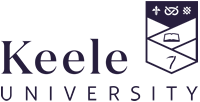Project Title: USING METABOLOMICS ANALYSIS TO OPTIMISE CHONDROCYTE-Based Therapies for human Cartilage Injuries
Background: The RJAH orthopaedic hospital and Keele University have been at the forefront of using a cell-based therapy (autologous chondrocyte implantation or ACI) to treat damaged cartilage in knees and other joints for nearly 30 years. At the RJAH we are nearing completion of a clinical trial (ASCOT: Autologous Stem cells, Chondrocytes or the Two) (Eudract number 2010-022072-31). We have a matched population of implanted chondrocytes and synovial (joint) fluids banked from these treated patients. Further, we have a wealth of data collected from patients in this trial, including patient reported outcome measures, imaging (Magnetic Resonance Imaging (MRI)) and histology. In the Oswestry Keele Orthopaedic Research Group (OsKOR) we have considerable ongoing exploratory work to identify ‘markers’ on the cells surface, which could help predict their efficacy or ‘potency’. Further we have current projects where transcriptomics and proteomics are being performed on all the cell populations used in the trial, again with the aim of identifying transcripts and proteins of potency. This PhD study aims to now consider if there are changes in the metabolome of patient chondrocytes to identify metabolite potency markers.
As well as aiming to identify the ‘most potent cells’ it is very important that the cells are implanted into an ‘optimal’ joint environment, which will be permissive to cartilage repair. Over the last ten years Drs Hulme and Wright have comprehensively characterised the synovial fluid ((SF)that bathes the knee joint) from patients treated with ACI. This has included targeted analyses to measure proteins/enzymes related to cartilage damage/repair, as well as, utilising different proteomic techniques to profile the differential SF proteomes relating to good or poor clinical outcomes. These studies have indicated that there are differences in metabolic enzymes/proteins that are associated with different clinical outcomes. Further, there is growing evidence that in Osteoarthritis, there is a subgroup of patients with altered inflammatory profiles, including changes in lipid metabolites. These data indicate that there is a need to characterise the metabolic profiles of SFs of patients treated with ACI to better understand the biology underlying these different clinical response.
Metabolomics utilises mass-spectrometry to identify and relatively-quantitate metabolite abundance changes in samples. The Centre for Metabolomics Research (CMR) at Liverpool University is a world-leading centre in developing and applying metabolomics standards and procedures. Under the supervision of Prof. Roy Goodacre you will learn to prepare samples for metabolomics analysis, to use Liquid Chromatography-Mass Spectrometry (LC-MS) and Gas Chromatography-Mass Spectrometry (GC-MS) and to analyse the resulting data.
The aim of this project is to utilise metabolomics analyses to help improve the efficacy of ACI by ensuring that the ‘optimal cells are implanted into the optimal joint environment’. This work has the potential to improve patient outcomes by aiding patient stratification and in doing so to reduce NHS costs associated with treatment failure.
The objectives of the current studentship are to (1) perform metabolomics analysis of chondrocytes used in ACI, (2) identify chondrocyte cellular metabolite profiles which relate to favourable patient outcomes, (3) perform metabolomics analysis of SFs from matched ACI treated patients and to identify SF metabolites which relate to favourable patient outcome and (4) to carry out a system bioinformatics analysis (to interrelate chondrocyte cellular transcriptome, proteome and metabolome data).
This project provides the opportunity to work closely with researchers at different Universities, clinicians and human patient samples/data to address a pertinent clinical question that will likely lead to patient benefit. The studentship will be based at the RJAH Orthopaedic Hospital in Oswestry, however, there will be semi-regular periods of the project where the student will need to attend training and to analyse samples at the Centre for Metabolomic Research (CMR) at Liverpool University and to attend Keele University for occasional training.
For any further information or for an informal chat about the project please contact: Dr Charlotte Hulme ([Email Address Removed] / [Email Address Removed])
Please apply for: PhD biomedical engineering
https://www.keele.ac.uk/study/postgraduateresearch/studentships/usingmetabolomicsanalysistooptimisechondrocyte-basedtherapies/

 Continue with Facebook
Continue with Facebook



